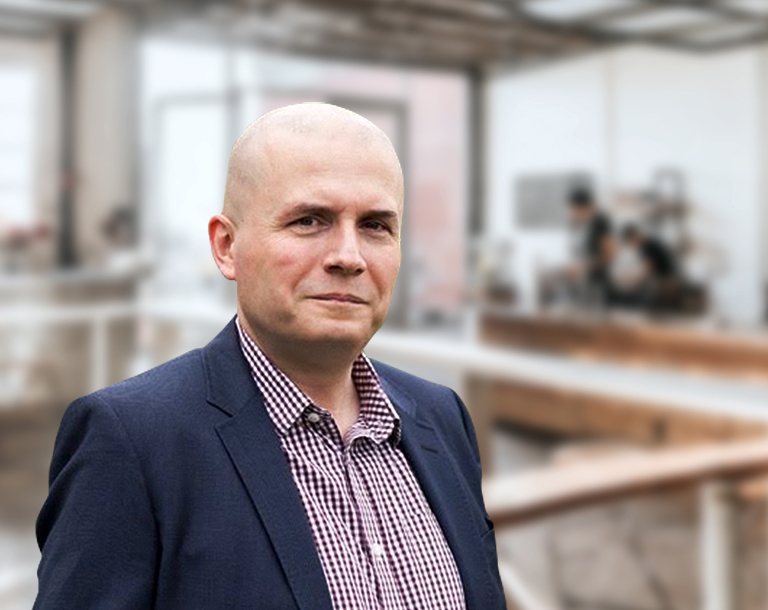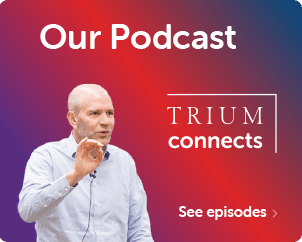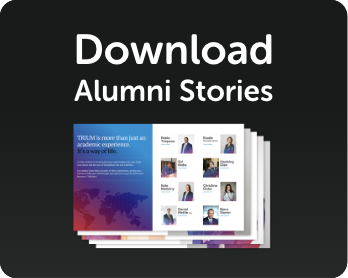

Jean-Marc Lemiere
As Director of Strategy and Development of Decathlon – one of the leading sporting goods designers and retailers in the world – Jean-Marc Lemiere strives to understand both the opportunities and risks of growing a business into a global company.
Jean-Marc is actively involved in business development and asset allocation while also supporting the various business unit leaders as they grow their activity across the globe. (the company has more than 80,000 employees in 39 retail countries, with recent expansion in Southeast Asia).
In the midst of his TRIUM journey, Jean-Marc reflects on how TRIUM’s curriculum has complemented his experience in finance and international development, how the modules at Singularity University and Shanghai showcase the potential of technology to rapidly change the game, and how TRIUM has equipped him with an international perspective of a volatile global market.
What were your objectives in exploring executive education and why did you choose TRIUM?
My background includes two decades of professional experience, two-thirds of which has been with Decathlon – and has been mostly finance and international development.
At the end of 2014, I had been appointed to my current position, in charge of strategy and development for my company. After a three-day corporate seminar specifically customized for us at HEC, I realized I needed a strong refresher in certain areas and that I had to complement my skills in others to be able to tackle the challenges ahead. That is when I decided I should contemplate doing an executive MBA.
What new values have you derived from your TRIUM journey so far?
I came to TRIUM because it precisely fit my needs in terms of stance and curriculum. I also had the conviction that an executive MBA is not a product you buy on a shelf: it is what you want to make out of it; meaning you get as much as you have put into it.
The value of TRIUM thus far has come in various forms as far as I am concerned.
First, I have enjoyed a lot our classes in geopolitics in London, because they shed light on many practical questions international companies have in an increasingly challenged and volatile world.
I was also thrilled by our two weeks in California including the day spent at Singularity University. There, we were able to get an understanding of the extraordinary technological and behavioural forces that are at work in the shaping of our world and how fast that change is coming. It was mind blowing.
Above all, I drew most of the value from the readings and the cases with which the professors engaged us. A valuable takeaway from the program is that the professors act as gatekeepers; opening doors for us and showing possible directions. In the end, it is really up to us to build and make the journey.
Of the available Global EMBA programs available to you—including in your home country of France—why did you choose TRIUM?
I chose TRIUM for two reasons. First, I found the curriculum of TRIUM most in tune with my expectations and my role, which is to help my company reach its next stage of development both in terms of footprint and in terms of value proposition. Many EMBA programs are designed as a catalog of new skills: TRIUM is there for you to increase your knowledge and connect the dots.
The second reason I joined TRIUM was for the diversity and the seniority of its participants. We all have very different backgrounds in terms of professional experience; there are many different nationalities and personalities but all have something in common: the view that all those differences are to be protected and respected because they add a tremendous value to the world we live in.
At Decathlon, you are responsible for business development, performance management and helping the various business unit leaders grow their activity across the globe, including in Asia. How has TRIUM’s Shanghai module enriched your understanding of the market?
I have come to the Shanghai module with two ideas in mind: share my knowledge and admiration for what China has accomplished over the last 40 years and discover the next generation of worldwide leading companies from China.
During that stay in Shanghai, I had the chance to meet with senior executives at two of the most innovative and growing companies in their field: Hema, a venture of Alibaba in the field of food retailing and NIO, a brand new automotive company that I am betting we will all soon hear as much as we have heard about Tesla.
In both cases, this was obviously the confirmation that China was now home of trendsetters. But beyond that, it was real life confirmation of what we had discussed in California: because of new technologies and behaviors towards the latter, change happens extremely fast and new world leaders can literally appear in a matter of months. We better be prepared to seize those same opportunities for our own good.
Decathlon has operations in more than 30 countries. Can you elaborate on how you distinguish “global” and “international” in your business philosophy and operations? How do you anticipate that the TRIUM Global EMBA will help you succeed within each framework?
We started as a French company going abroad, across Europe. The next stage happened when we started to expand outside of Europe to become international. When we think this way we still refer to a starting and defining point. This is being international.
In my view, there are only a very few global companies in the world: being global, to me, is when you have become part of all the local landscapes of the world; it’s when people in every single country, city or village think that you are now part of their lives. This is extremely difficult to achieve and requires a great deal of responsibility.
I see TRIUM as being part of my journey to help my company being both international and global in various ways. First, when applying to the program, I sensed that this community shared those views and – with its unique set of very different attributes—would be there to help me reach that target.
Second, we – as a company – have still a great deal to learn, and many people around the world also fear what globalization or technological progress could mean. Being part of TRIUM is a way to help me answer the challenges that are ahead of us: it’s more than attending an executive program; it’s being part of a community of thoughts.
What has the highlight of your TRIUM journey been so far?
It’s very hard to say because there were a few instances when I told myself: “Well, that course has paid for the whole tuition alone!”
A few defining moments have been the day at Singularity University, a workshop on career management lead by Daniel Porot at HEC, and the moment I nailed down Robert Whitehall’s last finance exercise.
How would you sum up your TRIUM experience in three words?
Intense, eye-opener, fulfilling.






